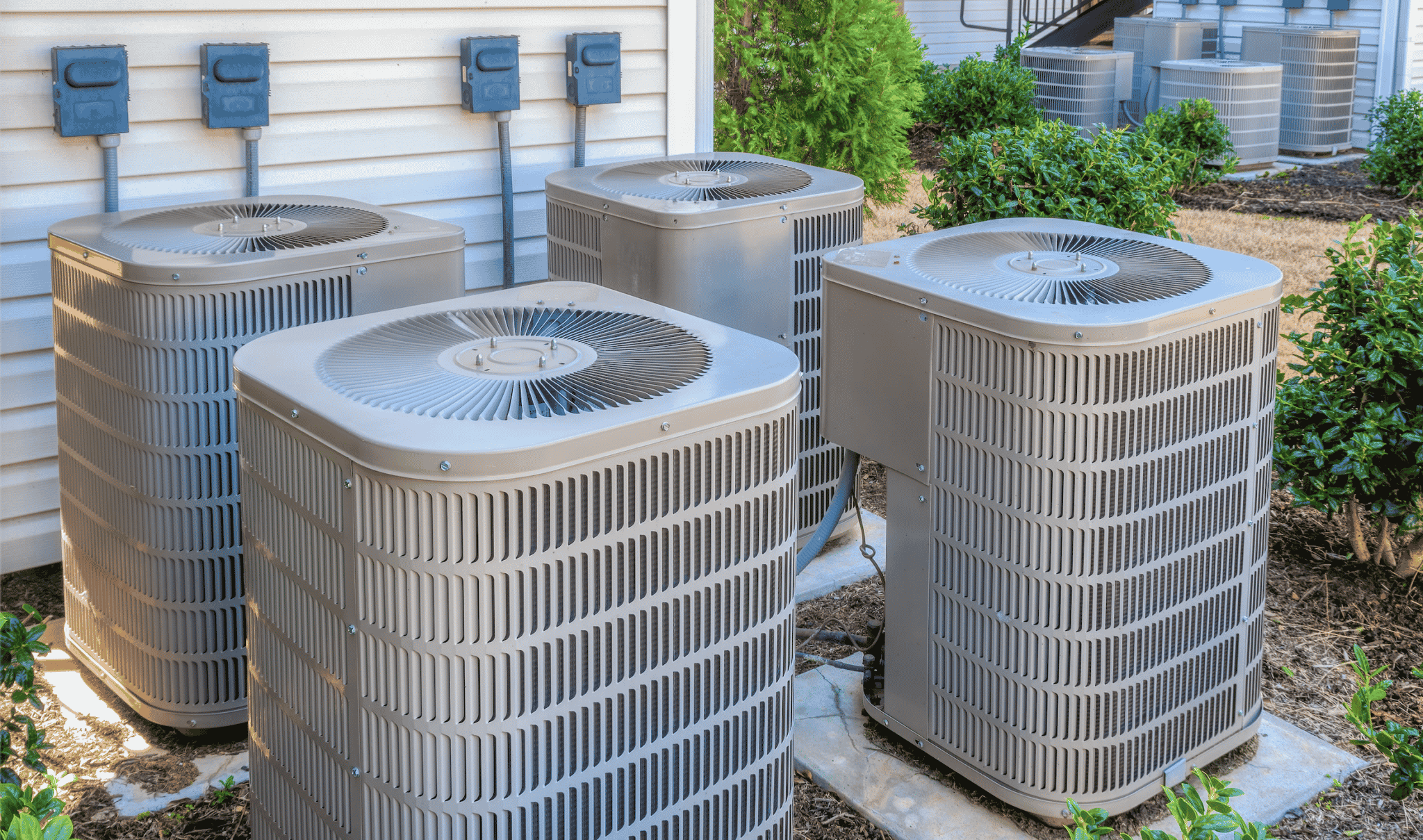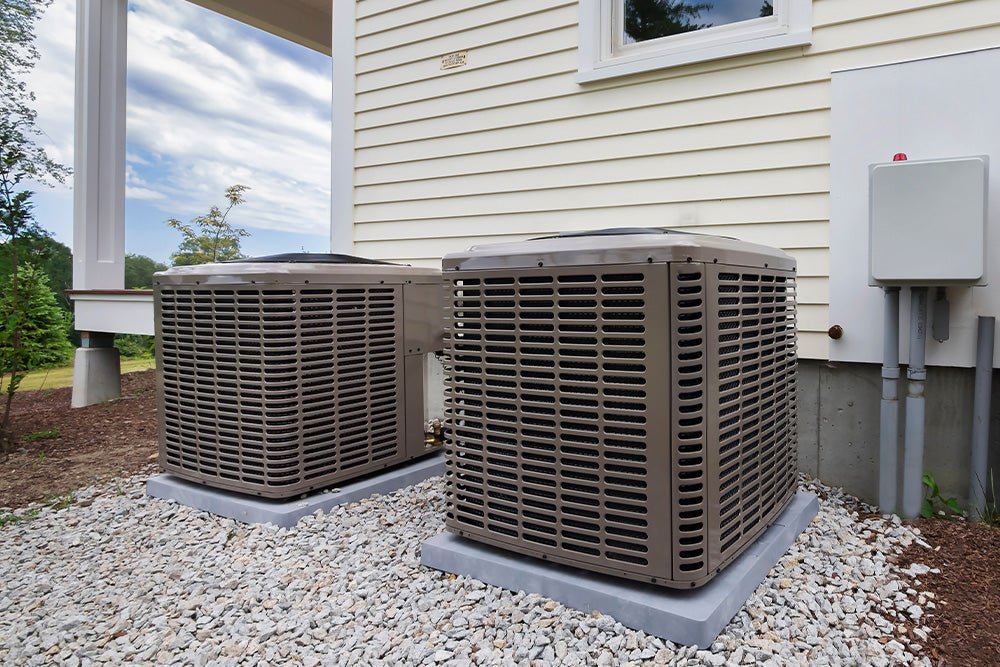Explore how HVAC experts help reduce utility expenses significantly
Exploring the Crucial Parts of an Effective Heating And Cooling System
An efficient cooling and heating system is built on several crucial components that operate in harmony. Each component, from the thermostat to the ductwork, plays an important duty in preserving convenience and energy efficiency. Understanding these aspects is important for optimizing efficiency and enhancing interior air high quality. As one takes a look at these elements, the detailed partnerships in between them reveal insights right into improving overall system effectiveness. What specific elements add most to this performance?
The Role of the Thermostat in HVAC Effectiveness

Often ignored, the thermostat plays a critical role in the performance of HVAC systems. This little gadget serves as the key control center, managing temperature setups and making certain optimal comfort within a space. By properly picking up the ambient temperature, the thermostat connects with the heating, air, and air flow conditioning systems to maintain the wanted environment
An efficient thermostat reduces power consumption by activating the HVAC system only when needed, thereby protecting against extreme home heating or cooling. Modern programmable and clever thermostats enhance this performance further by allowing individuals to set routines and from another location change settings, adjusting to day-to-day routines.
Moreover, the positioning of the thermostat is crucial; incorrect place can lead to inaccurate temperature level analyses, causing ineffective procedure. Generally, a well-functioning thermostat not just boosts convenience yet likewise adds considerably to energy financial savings and the longevity of the heating and cooling system.
Recognizing the Value of Air Filters
Air filters offer an essential feature in HVAC systems by assuring that the air flowing within a room continues to be healthy and balanced and clean. These filters trap dirt, irritants, and various other toxins, avoiding them from being recirculated throughout the atmosphere. By catching these fragments, air filters add to boosted indoor air quality, which can considerably benefit residents' health, particularly those with allergic reactions or respiratory problems.
Additionally, maintaining clean air filters improves the effectiveness of a/c systems. Blocked filters can limit air movement, causing the system to work more challenging to preserve preferred temperature levels, bring about boosted energy intake and greater energy bills. Regularly changing or cleaning up filters is an essential maintenance action that can lengthen the lifespan of a/c tools. Ultimately, understanding the relevance of air filters allows home owners and structure managers to take aggressive procedures to ensure a well-functioning, reliable heating and cooling system that advertises a comfy and safe interior environment.

The Performance of the Heater and Heat Pump
Heaters and heat pumps are essential components of a/c systems, liable for providing heat throughout cooler months. Furnaces run by home heating air via combustion or electrical resistance, after that distributing it throughout the home using ducts. They generally offer rapid heating and can be fueled by all-natural gas, power, or oil, depending on the system kind.
On the other hand, heat pumps move heat as opposed to create it. They draw out warm from the outside air or ground, even in low temperature levels, and transfer it inside your home. HVAC experts. This twin performance allows heatpump to additionally give air conditioning in warmer months, making them flexible options for year-round climate control
Both systems require proper maintenance to guarantee effectiveness and durability. While heaters master extreme chilly, heatpump can be advantageous in moderate environments. Comprehending their distinct capabilities aids home owners in selecting the most suitable option for their home heating requires.
Checking Out the A/c Device
The air conditioning unit is a vital part of cooling and heating systems, readily available in different kinds to match various demands. Understanding the effectiveness rankings of these systems is vital for making informed choices regarding power intake and cost. This section will check out the varied kinds of ac unit and clear up how efficiency scores effect efficiency.
Kinds Of Air Conditioners
While various aspects influence the choice of cooling systems, recognizing the various kinds available is critical for homeowners and building managers alike. click here Central air conditioning conditioners are created to cool down entire homes or buildings, making use of a network of ducts for air flow. Window systems use a more local remedy, ideal for single spaces or small areas. Mobile ac system offer flexibility, allowing customers to move the system as needed. Ductless mini-split systems are an additional option, incorporating the performance of central systems with the comfort of zoning, as they need no ductwork. Finally, geothermal systems harness the planet's temperature for energy-efficient air conditioning. Each kind comes with distinctive benefits, making informed selections important for reliable environment control.

Efficiency Rankings Clarified
Recognizing effectiveness ratings is important for picking the best air conditioning unit, as these metrics offer insight right into the system's performance and energy usage. The most common rating for ac system is the Seasonal Energy Performance Ratio (SEER), which measures the cooling result throughout a common cooling period split by the overall electrical energy input. A greater SEER shows far better efficiency. Additionally, the Power Performance Ratio (EER) is used for gauging performance under particular problems. One more important metric is the Power Star certification, which symbolizes that an unit meets rigorous energy effectiveness guidelines. By assessing these rankings, customers can make educated selections that not only maximize comfort yet likewise lower energy expenses and environmental effect.
The Value of Ductwork and Air flow
Reliable ductwork design and airflow monitoring play crucial duties in the general performance and efficiency of heating and cooling systems. Appropriate ductwork guarantees that conditioned air is distributed equally throughout a space, decreasing temperature fluctuations and boosting comfort. Well-designed ducts reduce resistance to airflow, lowering the work on heating and cooling equipment and eventually reducing energy consumption.
Airflow administration involves purposefully putting vents and signs up to enhance the flow of air. This prevents usual problems such as hot or cold spots, which can take place when air movement is blocked or improperly balanced. In addition, the best duct products and insulation can better improve performance by decreasing warm loss or gain during air transportation.
An efficient ductwork system not only contributes to energy cost savings however can also prolong the lifespan of cooling and heating devices by reducing unnecessary strain (HVAC experts). Subsequently, comprehending the significance of ductwork and air flow is important for attaining peak HVAC system efficiency
Regular Maintenance Practices to Boost Efficiency
Routine maintenance techniques are crucial for ensuring peak efficiency of a/c systems. These techniques include regular assessments, cleaning, and needed fixings to maintain the system running successfully. Regularly changing air filters is crucial, as clogged up filters can obstruct air flow and lower efficiency. On top of that, technicians must inspect and clean evaporator and condenser coils to avoid getting too hot and power wastefulness.
Yearly expert assessments are likewise advised, as skilled professionals can identify possible problems before they escalate. Lubricating relocating components decreases wear and tear, adding to a much longer lifespan for the system. Furthermore, ensuring that the thermostat functions correctly aids in keeping optimal temperature control.

Often Asked Inquiries
Just how Frequently Should I Change My Thermostat?
Thermostats need to usually be replaced every 5 to one decade, relying on usage and innovation advancements. Regular checks are advisable to assure peak efficiency, specifically if experiencing irregular temperature level control or raised energy costs.
What Dimension Air Filter Is Ideal for My Cooling And Heating System?
The most effective size air filter for a HVAC system differs by system design. Normally, it's crucial to speak with the owner's manual or inspect the existing filter measurements to ensure peak performance and air high quality.
Can I Mount a Warm Pump Myself?
Setting up a heatpump separately is possible for experienced people, however it calls for expertise of regional codes and electric systems. Hiring a professional is suggested to guarantee proper setup and ideal system performance.
Just how Do I Know if My Ductwork Is Efficient?
To establish ductwork performance, one should check for leakages, step air flow at vents, check insulation high quality, and evaluate temperature distinctions in between supply and return ducts. Specialist assessments can give extensive insights into overall efficiency.
What Are Indications My Heating And Cooling Demands Immediate Upkeep?
Indications that a HVAC system requires immediate maintenance consist of uncommon noises, irregular temperatures, boosted power bills, unpleasant odors, and frequent cycling. Resolving these concerns promptly can avoid further damages and warranty top system efficiency.
Air filters serve an important feature in HVAC systems by ensuring that the air circulating within a room remains clean and healthy and balanced. Additionally, maintaining tidy air filters enhances the performance of HVAC systems. Ductless mini-split systems are one more choice, integrating the efficiency of main systems with the ease of zoning, as they need no ductwork. Understanding efficiency scores is crucial for picking the appropriate air conditioning unit, as these metrics offer understanding right into the system's performance and energy usage. The finest dimension air filter for a HVAC system varies by device layout.